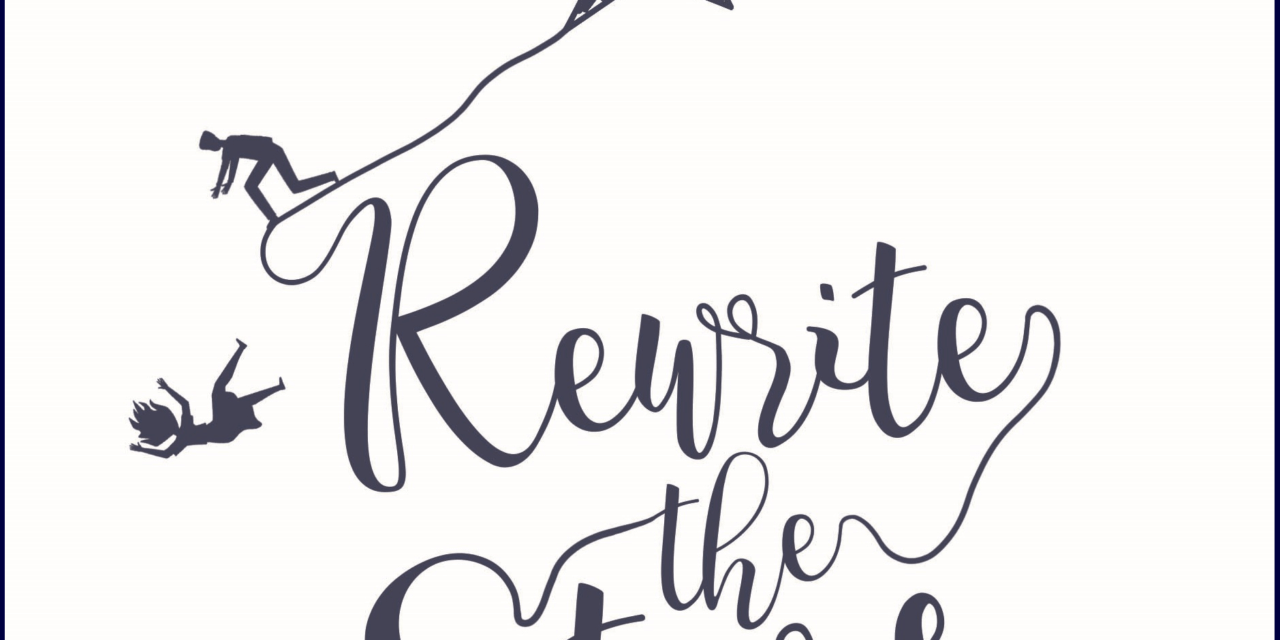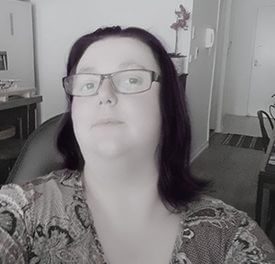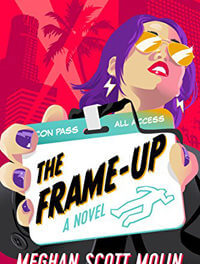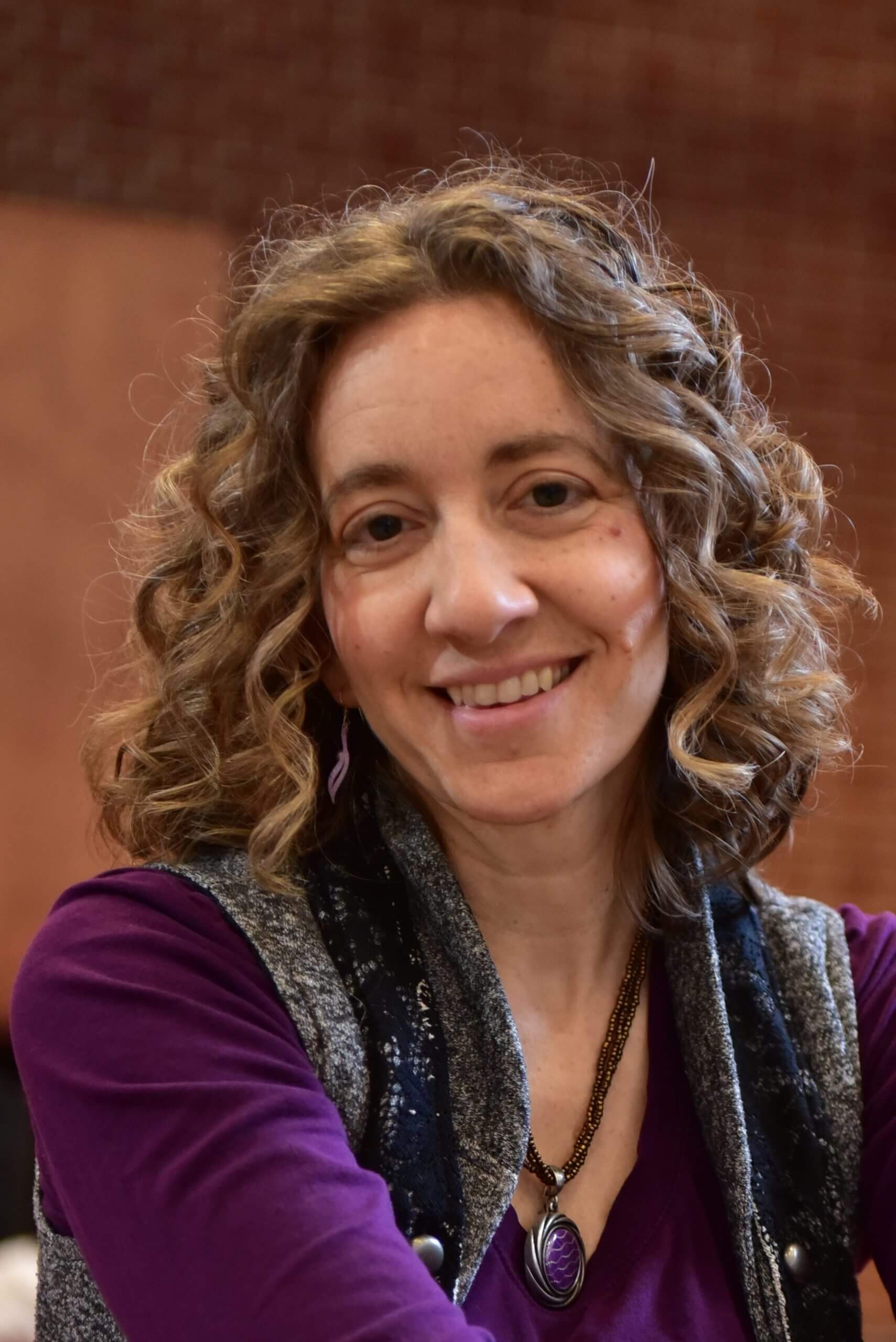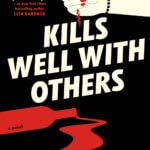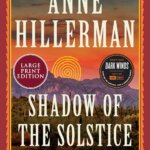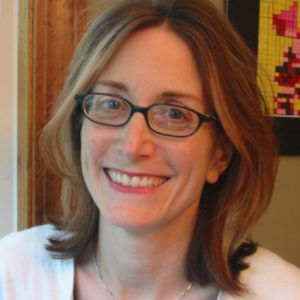
SS: Christina, it’s so nice to chat with you today. What did you want to grow up to be as a child? Has that child’s desire appeared in your work?
CC: When I was a child, I waffled between the possibility of two professions: a medical doctor (more specifically a surgeon or a forensic pathologist) or a writer. My parents encouraged the pursuit of science over writing, and after college, I took two years to work in a prostate cancer lab. While there, I decided that graduate school appealed to me more than medical school, and I chose to pursue a doctorate in physiology. I taught anatomy and physiology at the college level for over fifteen years before I decided to concentrate on editing and writing. My scientific training helps when it comes to researching any subject (for my own writing or that of clients), and my books almost always feature a physical or mental health issue. In effect, I combine my two loves.
SS: What in your childhood contributed to you becoming a writer?
CC: My mother loved books and taught me to read before I went to kindergarten. She never said no to a book, and when I was young, she made time to read to me well into my adolescence. While she and I didn’t talk about writing very much when I was young, I always made sure to read my work aloud to her for feedback. I guess you could say she was my first beta reader! I found out much later (when I was cleaning out my parents’ house) that Mom had always wanted to write. Sadly, that never came to fruition; she has Alzheimer’s, and any stories she might tell are trapped within her mind.
SS: Writing is undoubtedly a lonely occupation. John Green (The Fault in Our Stars) says writing is a profession for introverts who want to tell you a story but don’t want to make eye contact while doing it. P. D. James (Cover Her Face) says it’s essential for writers to enjoy their own company. Do you see yourself along those lines? Are you a natural loner?
CC: Absolutely! I could be happy in my home with access to food, a treadmill, a computer, and books (including John Green’s!) for a long time. Something about the solitude has always appealed to me, and I often find it difficult to place myself in situations with throngs of people.
SS: I’m the same way. Do you generally write in one genre? If so, what is it? And what can readers expect from one of your books?
CC: For the most part, I write women’s fiction, and my tagline is “Fiction about families like yours.” And that’s what I write: layered stories about families based mainly in the Midwest that could be someone you know. These families might involve the conventional nuclear family or not, but I hope they represent a broad range of people. I want readers to think about the complications and obstacles my characters overcome and be confident that they, too, can do the same.
SS: How do you give back to the writing community?
CC: Outstanding literary citizenship is something I strive for every day. My efforts are sometimes small—a simple retweet or share on social media can do the trick—but like you, I interview authors to help spread the word about them and their books. That’s my favorite way of giving back to the writing community. (And since I’m always on the lookout for new interviewees, feel free to contact me about an interview!)
SS: Do you ever incorporate something that happened to you in real life into your novels?
CC: All. The. Time. My debut novel, Rewrite the Stars, began after a conversation I had in a grocery store checkout line and grew from there. My next book, The Chocolate Garden, blossomed from the experiences I had the summer my mom was diagnosed with Alzheimer’s. And the next one after that, The Marriage Debt, formed in my mind when a few friends and I were chatting about our experiences with life, love, and marriage. As much as I enjoy researching a new topic (and I do research any of the mental or physical health issues featured in my books), I also love to “write what I know” and experience.
SS: Khaled Hosseini (The Kite Runner) feels he discovers a story rather than creates it. Are you a plotter? Or do let the novel develop organically?
CC: I agree with Hosseini 100 percent. I’ve always been a keen observer, but since writing took over my life, I find myself making an even more concerted effort to observe everything, and when I do, I stumble upon an idea that, if allowed to ferment, will become a story. This can happen anywhere—he last time it did, I was in my car dropping off my youngest at school—and usually out of nowhere. When it does happen, I write a sentence or two as a reminder and just allow those thoughts to sit for a while. When I’m ready to expand that sentence, I’ll allow the novel to develop organically. Usually, surprises ensue.
SS: At what point did you come up with the title? Did your publisher change it?
CC: My titles often are the first words I write on the page, and I almost always have a title in mind while I’m writing. That title is a sort of “north star” for my writing, guiding me with respect to theme and symbols especially. In the case of Rewrite the Stars, the story began as After We’ve Fallen, and it lived with that title for many years. But late in the game, an experience with a writer’s conference prodded me to change the way I looked at my characters, and so I changed my title too. I wrote about that experience on John Scalzi’s Whatever blog.
SS: Could you say something about your relationship to your fictional characters? How autobiographical do you think your current work is?
CC: No matter how hard I try not to put myself into my characters, a little bit of me usually comes through in a few of them. And in some instances, a lot of me comes through. With Sadie (from Rewrite the Stars), I purposefully gave her more self-confidence because it’s something I lack, and I wanted to be sure she wasn’t “all me.” But some of my characters are vastly different from me. Case in point: Frank Raffaelo from my next book. He’s an 80-year-old retired military member who swings as far right as I do left. When I write characters who don’t think like me, I expand my horizons and challenge myself. And as I alluded to before, my writing is inspired by true events, characters, or conversations, which means that some of my work is autobiographical.
SS: How did you make the decision regarding point(s) of view?
CC: Rewrite the Stars started out with two points of view: that of Sadie and her eleven-year-old son, Charlie. After multiple readers and several revisions, I went to a writer’s conference. While there, I realized that among other things, the person who needed a voice, Theo, didn’t have one, and that Charlie’s voice could be revealed in dialogue with his parents. I don’t regret my decision to take Charlie out and add Theo in, and I think the inclusion of Theo makes for a richer, more authentic story.
SS: What kind of research did you think you had to do? How much was actually needed?
CC: Rewrite the Stars deals with the effects of post-traumatic stress disorder (PTSD) on a family and marriage. While I do flirt with mild depression, I did not have personal experience with PTSD such that I could write an accurate portrayal of the disorder without doing research. That’s where my scientific training helped. Reading research articles, books, and web content took time, but it all made sense to me. And if something didn’t, I’d reach out to experts or those who live with PTSD for answers. In the end, the amount of research I did lined up with my expectations of what I needed.
SS: What advice would you give aspiring writers?
CC: It’s the same advice I gave my students who asked about getting a PhD. I always said, “If I can do this, you can too.” And it’s true.SS: How important are romance and romance tropes in women’s fiction? Do you ever feel the need to break free of their constraints?
SS: Do you believe in real-life happily-ever-afters? Does women’s fiction have to have a HEA?
CC: I do believe in real-life HEAs. But what I’ve noticed about those who experience them is that these folks hold a happily-ever-after mindset. For these folks, change is expected, and obstacles are placed in their paths for them to jump over, not stumble over. They have confidence they will get through whatever life throws at them to stand tall on the other side, and they learn from their experiences. They end up happy because they choose to be happy. That’s a tough idea to sell, but I think it’s possible. Having said that, I do not think women’s fiction needs to have a happily-ever-after. Sometimes you get one, sometimes you don’t. Since women’s fiction revolves around the emotional journey of the protagonist, the ending might be less predictable.
SS: Women’s fiction seems to be a great way to “hide” commentary on current political or social issues in a narrative. Do you think political statements belong in literature? Would you write a novel that was a political tract?
CC: Yes, I do think political statements belong in literature. As you and I both know, words have so much power. The power to hurt, to heal, to educate, to inform. Politics doesn’t always define a person (or character), but political beliefs do tell you a lot about that person or character. If a writer wants to be subtle about political commentary, they can be. But I also believe that if they want to be more overt, that’s their prerogative. I don’t know that I’ll write a novel with straightforward political themes, but my readers probably get a sense of what I believe even though some of my characters might fall all over the political spectrum
Lightening Round:
SS: Describe your books in 3 words: emotional, touching, relatable
SS: When writing, are you a night owl or morning person? Morning person
SS: Pantser or Plotter? Planster (I usually have an idea of what the story is going to look like, but I don’t plot it out or outline it.)
SS: Who’s your favorite women’s fiction author? I have so many I can’t choose!
********************
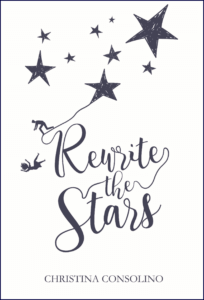
Amazon | Bookshop | Indiebound | B&N
********************
An excerpt from Rewrite the Stars:
On the morning my life began to unravel like the hem of my worn-out sweater, I found an old love letter from my almost ex-husband in the bottom drawer of my home office desk. The paper, at least fifteen years old, felt thin to my fingertips, like the lace on the bodice of my wedding dress. Inside the folds of the sheet, Theo had printed a few lines of text in his block scrawl—some words he’d written on his own, some he’d borrowed from our favorite poet, Rumi. You have disturbed my sleep, the text read. You have wrecked my image. You have set me apart.
Times had changed.
Without you, I can’t cope.
And yet, they hadn’t.
The letter’s edges scraped my fingertips one last time before I placed the paper into a file folder near my computer. The summer humidity made the drawer stick, and I pushed it closed, upsetting the small pile of bills balanced on the desk. Water sloshed from the tall glass near the computer—Theo had probably left it out all night—reminding me dishes still needed to be washed and put away. Moving toward the door, I kicked a toy car with a missing wheel. The vehicle crashed against the wall and came to rest near a singing-alphabet snail that had been waiting for new batteries for two weeks. From sweet love letters to dirty glasses and broken toys.
Insane giggles from the next room interrupted my progress, and the scene unfolded before me: Theo on hands and knees, three rambunctious children scattered across his back. Make that hand and knees—he possessed enough strength to balance on one hand. His arm muscles rippled against his favorite blue T-shirt as he tickled the children’s bellies. One tumbled off Theo and onto the carpet, while the second attempted to pull his shirt. The youngest, a pile of curls and drool, peered up at her father, joy radiating from her eyes as her pudgy fingers gripped his waistband. She clenched her teeth and yanked with a linebacker’s strength such that in one fell swoop, a portion of Theo’s shorts sprang away from his body. The kids rocked onto their heels, clapping their hands and howling, pointing at their father’s underwear. In return, Theo growled, his voice echoing across the great room rafters. The guttural noise sent the children to scatter from one toy-filled corner to the other and then back to him again.
I pinched my lips, stifling the laughter, before my gaze met Theo’s. It had been a long time since I’d witnessed such life in his eyes and in his actions. In fact, I couldn’t remember the last time he’d played with the kids so effortlessly. On many days, an ordinary day’s struggles wore him out long before he had a chance to interact with the children. Wiping away a tear from my cheek, I smiled—breathing in the happy moment, reveling in the charming family image, hoping to hold on to the contentment enveloping me as I went about the rest of my full day.
********************
You can follow Christina on social media here:
Website | Twitter | Facebook | Instagram
********************
This post contains Amazon Affiliate links. As an Amazon Associate, I earn a small amount from qualifying purchases.
